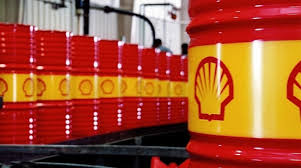
Lagos — Shell Lubricants has retained its status as the leading global supplier of finished lubricants for an 18th consecutive year, according to the 22nd edition of Kline & Company’s report, Global Lubricants: Market Analysis and Assessment 2023.
In the report, which covers all leading lubricant-consuming country markets, market segments, product types and formulations, Shell has held its status as the leading global supplier of automotive and industrial oils and fluids with number one ranking for all three lubricants categories tracked by Kline consumer automotive, commercial automotive and industrial.
Jason Wong, Global Executive Vice President Shell Lubricants, said: “Retaining our status for another year as the number one global supplier of finished lubricants underlines our commitment to supplying the right lubricant and fluid solutions for friction and thermal management to our customers, whether consumer, commercial or industrial.
“We’re proud to power the world’s progress with our brand, technology and people. Our focus now is about ensuring we’re able to continue to play a leading role in providing the lubricants and fluids solutions of tomorrow.”
Shell retaining the global leadership position and competitive advantage has been driven by investments in premium and differentiated products including Shell Helix passenger car oil, Shell Rimula truck and heavy-duty oils, and Shell Tellus and Shell Gadus industrial, which are all preferred brands in many major markets.
Shell was one of the first to launch an E-Fluids portfolio in 2019 and today Shell E-Fluids improve the overall efficiency, safety, and sustainability of EV powertrains around the globe.
However, the range of applications for such fluids goes far beyond EVs. For example, as part of an integrated offer for data centres and Battery Energy Storage Systems (BESS), Shell has introduced a range of immersion cooling fluids designed to push the boundaries of performance, efficiency, and sustainability.
Shell continues to deliver ever more sustainable solutions, with the Shell Lubricants business playing a critical role in supporting Shell’s target of becoming a net-zero emissions energy company by 2050. Progress towards this target is being made by reducing the carbon emissions from its own operations and by helping customers to lower their carbon footprint and reduce waste.
Shell Lubricants is reducing waste through the development of sustainable packaging and circular solutions, as well as delivering more sustainable options through its range of biodegradable products. Shell Lubricants’ most advanced low-viscosity lubricants can increase fuel economy by up to 3% when using and can increase energy efficiency in industrial applications by up to 4% which, together with their ability to help extend engine and machinery life, contribute to lower emissions.
According to the latest report, Shell maintained its leading position with global market share at 11.6%. As in 2023, Shell Lubricant’s global sales were split almost evenly between the three segments: 36% consumer automotive, 33% industrial, and 31% commercial automotive.



